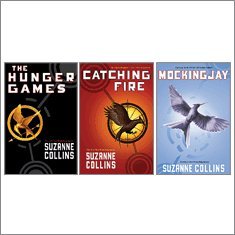 Phew. The last day of November. I just uploaded my 50K+ words to NaNoWriMo and received my winner badge. And now I can get back to a regular blogging schedule.
Phew. The last day of November. I just uploaded my 50K+ words to NaNoWriMo and received my winner badge. And now I can get back to a regular blogging schedule.
Since I’ve been a bit awol as of late, I thought I’d give a little summary of the things you’ve missed during the writing marathon I just underwent. So here goes:
- I decided on the new design for my website. It should be up and running by the end of the year. Can you guess which design I went with?
- I saw the new Harry Potter Movie. Review to follow, but just as a teaser, I was pretty impressed and now I feel like I have to reread the book. More on that though.
- My work started blogging. Ok, I started blogging for work, but I’m roping in some additional authors from around the archaeology lab. If you have ever wondered what a real life museum person/archaeologist does, you should check out the NMSC Archeology Blog. It will also give you some insight into what I do when I’m not writing.
- I went home for the first time in 2 years and met my niece for the first time (she’s 2 in February). I also saw my almost 4 year old nephew. Not only are they super cute, but they reminded me about the little things kids find fascinating.
- I’ve read a lot. Hard to believe with all the writing, I know, but this month I’ve read: Magic Bites, Ilona Andrews; The Summoning, Kelley Armstrong; The Awakening, Kelley Armstrong; & The Angel Experiment, James Patterson. I’m currently reading The Duff, Kody Keplinger and School’s Out-Forever, James Patterson. As of this afternoon I will also be adding Matched, Ally Condie to my reading list, which came out today. So I’ve been busy and am now way behind on book reviews, but before you know it, I’ll be all caught up, I promise.
- And, my biggest achievement – I finished NaNoWriMo! My first draft is not finished, but I’ve made pretty good progress. And, now that NaNo is over, it means I can return to my other WIP. The away time has been good and I’m ready to dive back in and get that sucker ready to go.
It’s been a busy month and I won’t lie. I’m kind of happy to see it come to a close. How was your November? Any exciting things happen? Did you catch any good books or movies? Come up with a new idea for a book? Any big plans for December in preparation for the start of another new year?


 I have a confession to make. I love sci-fi. This is something I do not often admit. An interest in sci-fi is not exactly the coolest thing. Despite the resurgence of Dr. Who and and the success of Avatar, sci-fi has maintained it’s stigma. So I’m sure you can imagine my excitement when I stumbled upon
I have a confession to make. I love sci-fi. This is something I do not often admit. An interest in sci-fi is not exactly the coolest thing. Despite the resurgence of Dr. Who and and the success of Avatar, sci-fi has maintained it’s stigma. So I’m sure you can imagine my excitement when I stumbled upon 


